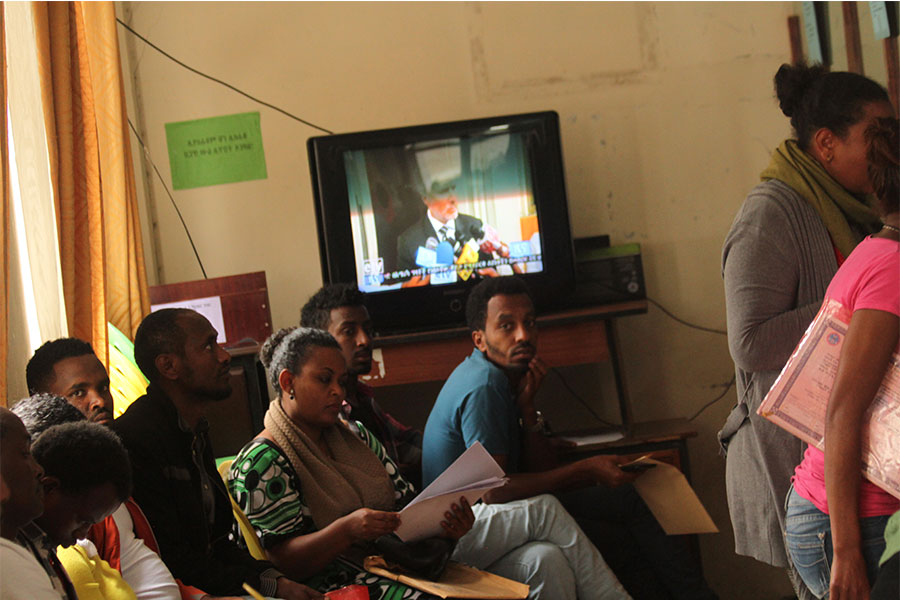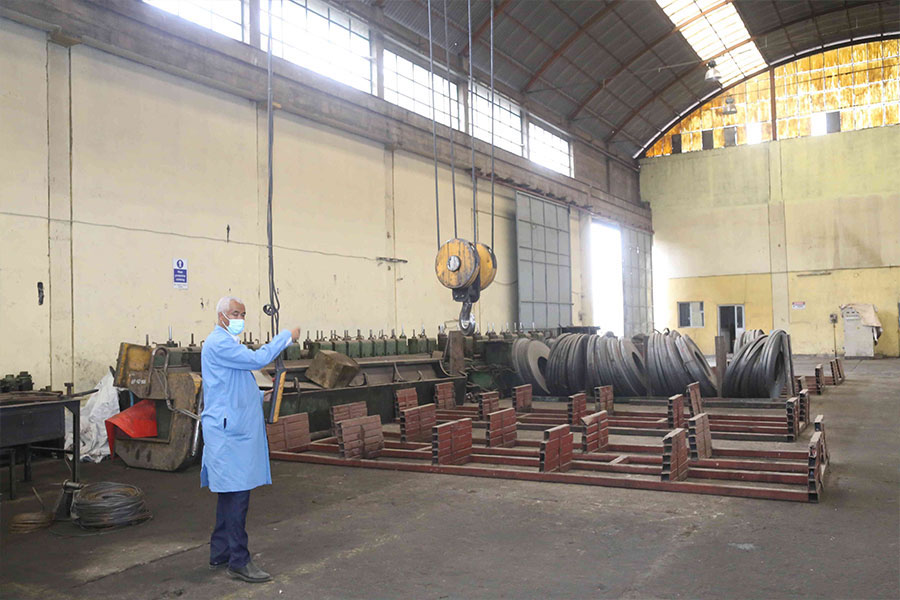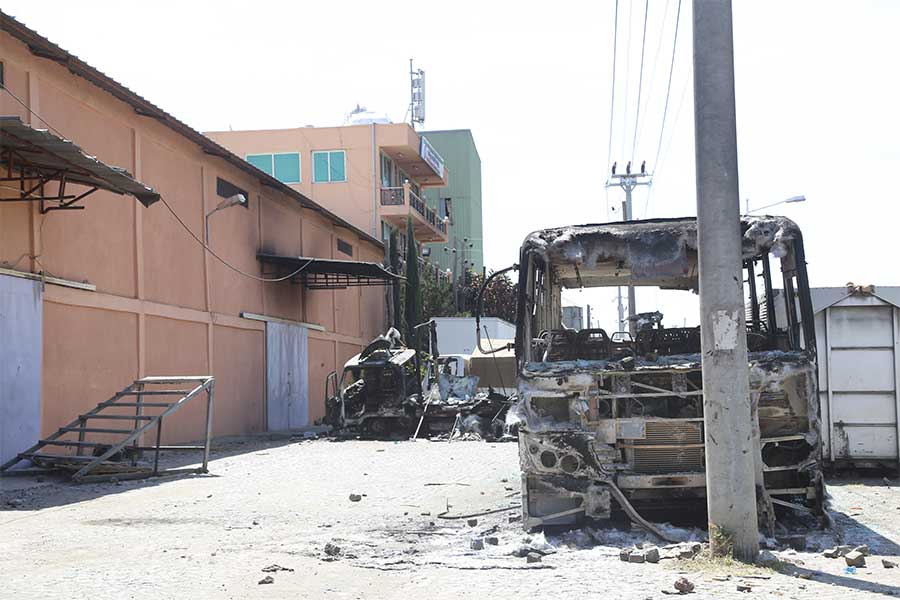
Fortune News | Nov 04,2023
The state shipping monopoly is closing in to acquire its maiden batch of refrigerated (reefer) containers as part of its expansion plans into cold chain logistics.
The Ethiopian Shipping & Logistics Services Enterprise (ESLSE) executives are considering their options to buy 30 units of refrigerated containers from one of two companies bidding to win the contract. The Chinese Guangdong Pi Power Co. Ltd and SG International vie to supply containers manufactured by CRRC Yangtze Co. Ltd and TSSC Group (both Chinese firms), respectively.
Company officials attribute the lack of interest by a large number of bidders to the small number of containers the shipping company buys now. However, the ongoing procurement is only part of a larger plan, according to Wondimu Denbu, deputy CEO of corporate services at the Enterprise.
“It's only a pilot programme for the next big acquisition we'll be making,” he told Fortune.
The pilot may cost the Enterprise a little over 16 million Br. The international market for a 40ft reefer container ranges between 10,000 and 12,000 dollars. Regular 40ft shipping containers go for around 7,500 dollars.
The procurement is prompted by growing demand from the horticulture industry. Perishable goods the Enterprise transports to ports in Djibouti use rented reefer containers.
For Tewodros Zewdie, executive director of the Ethiopian Horticulture Producer Exporters Association, horticultural products contain more water and can easily rot before reaching the export destinations.
Ethiopia earned 450 million dollars from the exports of horticultural products, mainly flowers, last year. Exporters use air or sea transport to ship their products abroad. While the former is much quicker and thus preferable for perishable products, the latter is significantly cheaper and would enable prices to be more competitive in the international market.
Horticultural products have a relatively short shelf life. Transportation cost is a crucial factor in determining the competitive position in export markets. However, most horticulture exporters use air freight due to the absence of refrigerated containers.
The Enterprise's acquisition also augurs well for the country's fledging avocado exports, which stand to benefit from the reefer containers. Last year, around 3,000tn of the Hass variety of avocado was exported, generating close to 800,000 dollars. Though the value is 800pc larger than what was earned four years ago, there is more potential.
Tewodros observed the demand for horticulture products like avocado growing fast in the international market. The Association he leads receives over a dozen requests from buyers in Europe and the Middle East weekly, each interested in buying an average of 20tn of avocado. A growing number of farmers shift from cultivating other crops to avocado.
Commercial avocado farmers almost doubled last year from 1.8 million three years ago. The total farmland used for cultivating the fruit also jumped by 70pc to 30.6hct. With this came significant growth in production, shooting by a little over 200pc, reaching 2.45 million quintals.
The federal government has plans to construct a cold chain facility at Modjo Dry Port on 5.6hct of land with an outlay of 50 million euros. The Dutch government covers half of the cost.
“The feasibility study is finalised, and we're awaiting a decision on how and when to allocate the remaining 50pc share,” said Mengist Hailemariam (PhD), manager of the Ethiopia Trade Logistics Project at Maritime Authority, whose office is overseeing the facility.
Modjo Dry Port has made the land available for constructing a cool chain facility, disclosed Dereje Mideksa, general manager of the Port.
The Port was chosen to construct a cool chain facility because it is the biggest dry port located on the country's major trade corridor, according to Ergana Buche, logistics coordinator and representative of Flying Swans. A consortium established to help Dutch corporations and entrepreneurs succeed in developing markets in Africa, Asia and South America, Flying Swans has prepared the feasibility study for the cold chain facility.
PUBLISHED ON
Jan 01,2022 [ VOL
22 , NO
1131]

Fortune News | Nov 04,2023

Agenda | Mar 02,2019

Radar | Dec 05,2020

Fortune News | Aug 27,2022

Radar | Jul 28,2024

Radar | Feb 04,2023

Agenda | Dec 24,2022

Fortune News | Mar 20,2021

News Analysis | Aug 28,2021

News Analysis | Jan 05,2020

Dec 22 , 2024 . By TIZITA SHEWAFERAW
Charged with transforming colossal state-owned enterprises into modern and competitiv...

Aug 18 , 2024 . By AKSAH ITALO
Although predictable Yonas Zerihun's job in the ride-hailing service is not immune to...

Jul 28 , 2024 . By TIZITA SHEWAFERAW
Unhabitual, perhaps too many, Samuel Gebreyohannes, 38, used to occasionally enjoy a couple of beers at breakfast. However, he recently swit...

Jul 13 , 2024 . By AKSAH ITALO
Investors who rely on tractors, trucks, and field vehicles for commuting, transporting commodities, and f...

Jul 5 , 2025
Six years ago, Ethiopia was the darling of international liberal commentators. A year...

Jun 28 , 2025
Meseret Damtie, the assertive auditor general, has never been shy about naming names...

Jun 21 , 2025
A well-worn adage says, “Budget is not destiny, but it is direction.” Examining t...

Jun 14 , 2025
Yet again, the Horn of Africa is bracing for trouble. A region already frayed by wars...